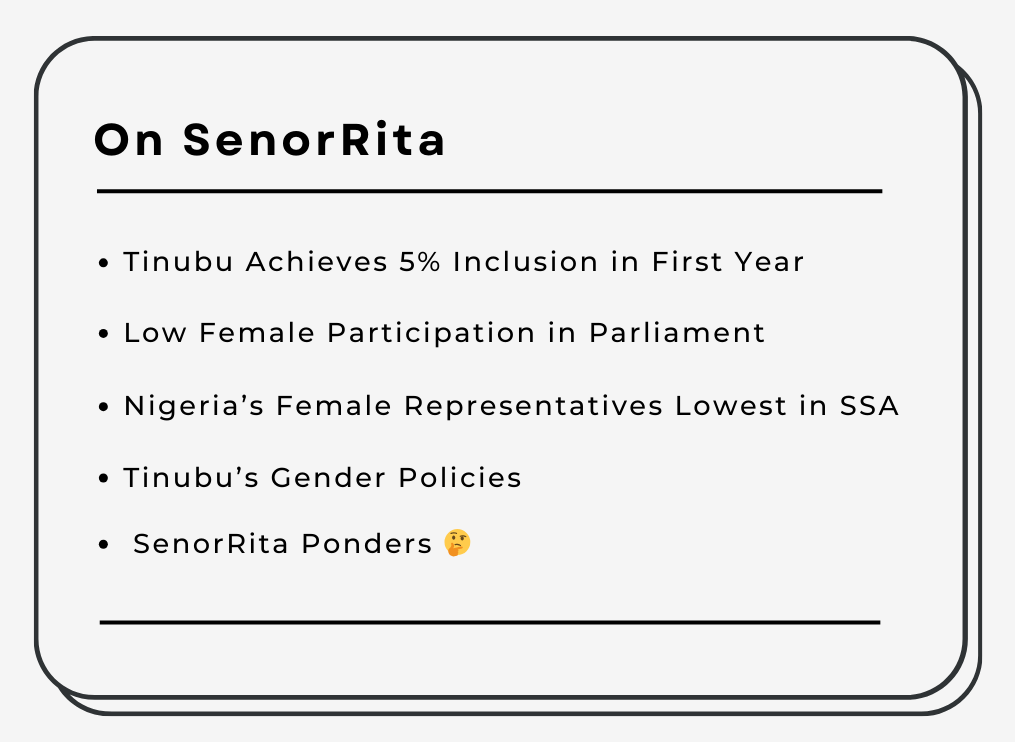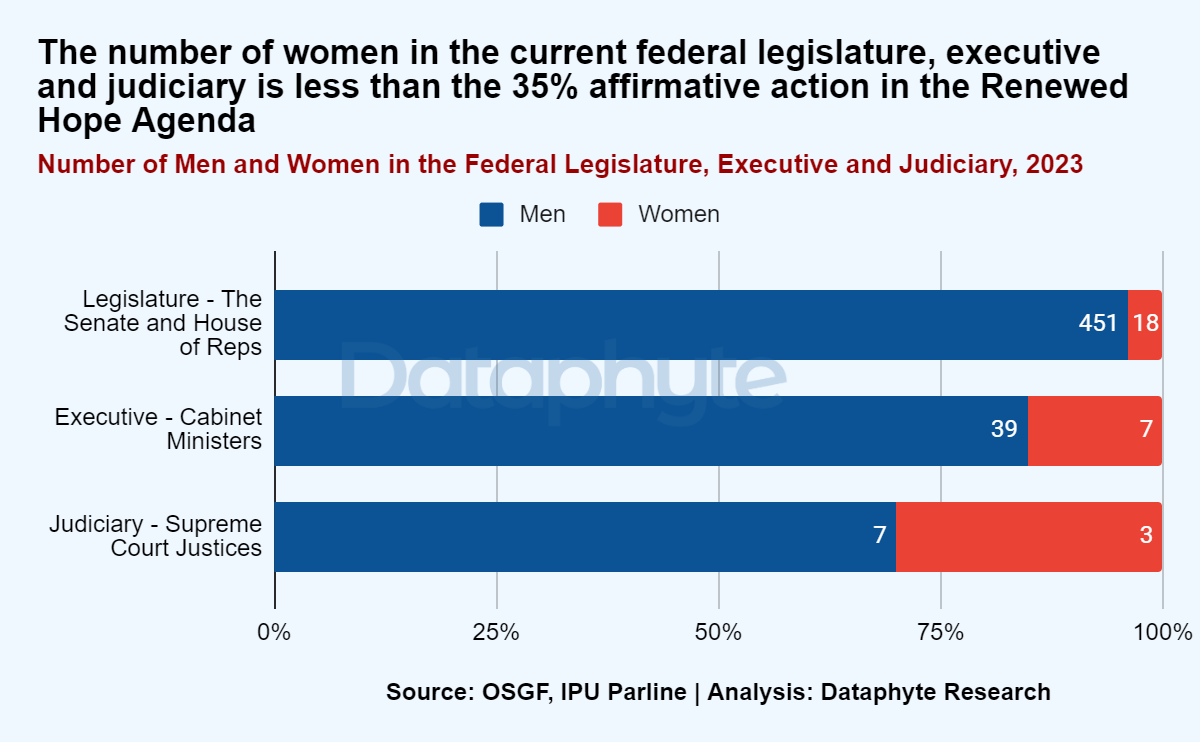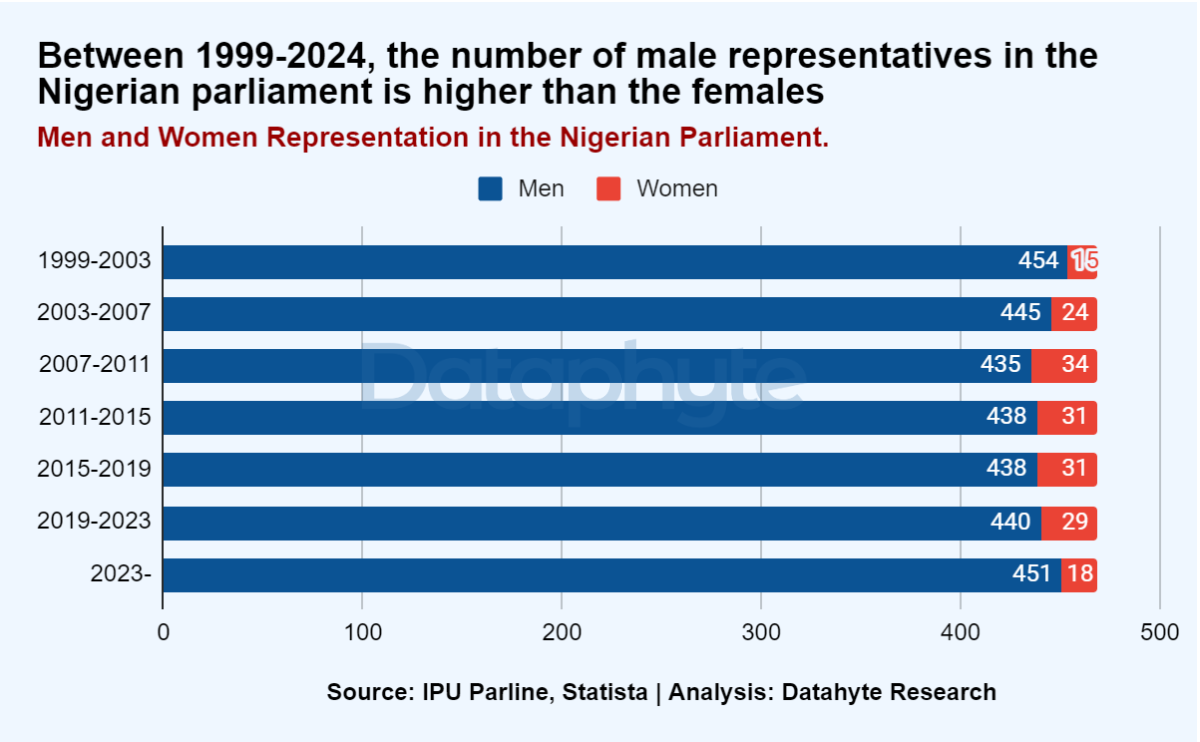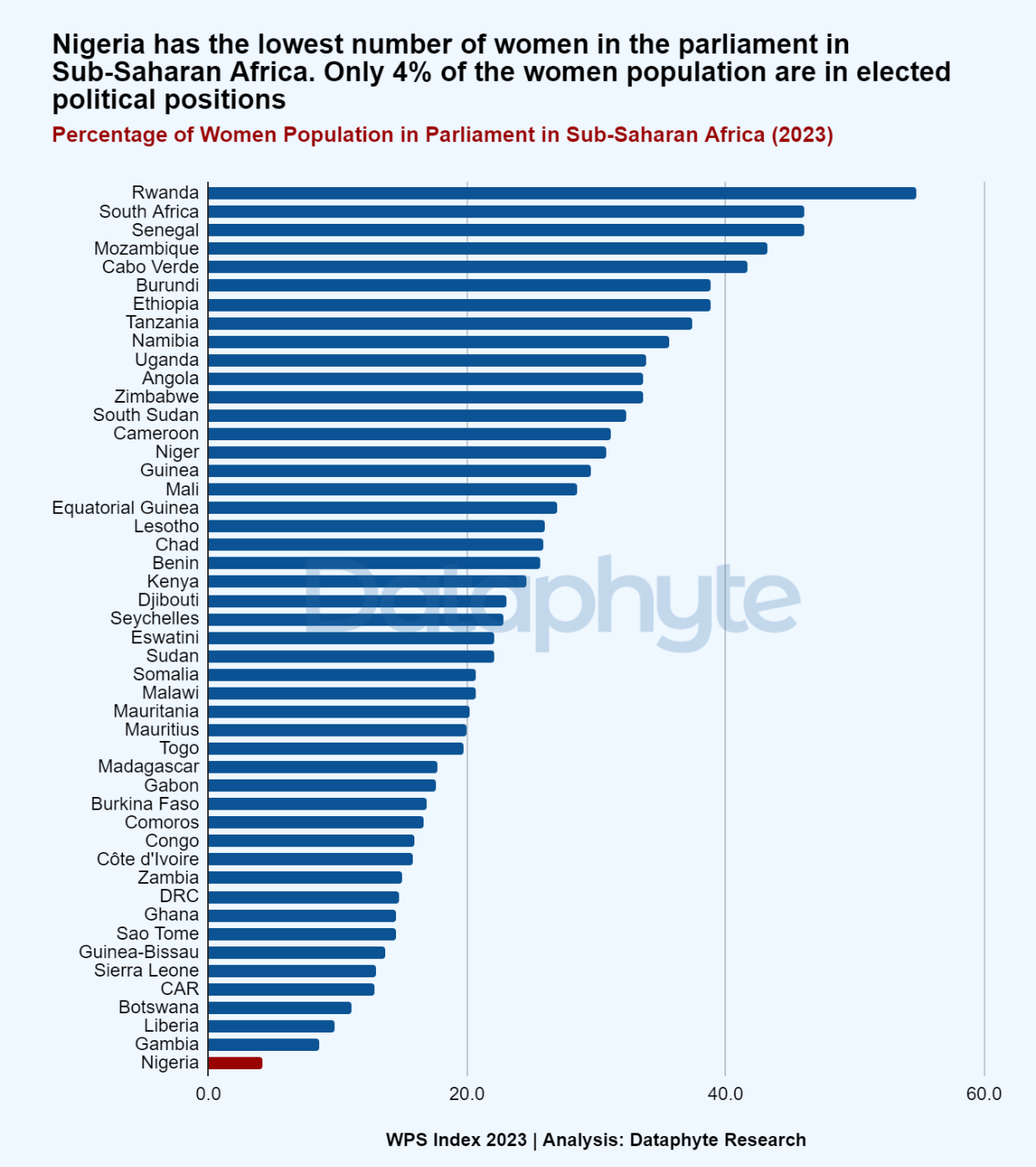Tinubu Achieves 5% Inclusion in First Year
Women constitute only 5% of the Tinubu-led 3-tier government, falling 30% points short of the 35% affirmative action outlined in his Renewed Hope Manifesto document.
Overall, women are less represented than men in the Legislative, Executive, and Judiciary.
Currently, women constitute only 15% of President Tinubu’s cabinet and just 4% of members of the Senate and House of Representatives.
This imbalance in women's representation in politics may increase gender-biased policymaking and decisions in the executive and the parliament, leading to a lack of attention to women's issues such as gender-based violence, sexual harassment, girl child education, child marriage, female gender mutilation.
In his Renewed Hope Agenda, Tinubu pledged that his administration would prioritise gender equality at all levels and increase women’s participation in government to at least 35% of all government positions.
Low Female Participation in Parliament
In the last 25 years, there has been a consistent pattern of low female representation in the Nigerian parliament, both in the Senate and House of Representatives.
Under the current administration, women comprise only 18 of 469 parliament members. This is the second-lowest number of women represented in parliament since 1999.
The lowest number of women in the parliament in Nigeria’s history was during former president Olusegun Obasanjo’s administration between 1999 and 2003, with only 15 women out of the 469 members. The highest record is between 2007 and 2011.
Nigeria’s Female Representatives Lowest in SSA
According to the Women, Peace and Security Index (WPS) 2023, the percentage of women in the Nigerian parliament is only 4%, the lowest among the 48 Sub-Saharan African countries on the list.
On the other hand, Rwanda has made significant progress in gender balance in public governance, with women accounting for 54.7% of the Rwandan parliament.
This indicates that the Rwandan government has achieved fair representation between genders, and ranks first in female inclusion in the parliament among the 48 Sub-Saharan African countries.
The WPS Index is an annual report that combines indicators of women’s inclusion, justice, and security, to track trends of inclusion, equality and diversity in selected countries across the world.
The pattern of government composition across successive administrations shows that women lag significantly behind men with regards opportunities to play a role in Nigeria's political landscape.
The country continues to experience a history of male-dominated governance, potentially leading to gender-biased policies.
How true is this?
Tinubu’s Gender Policies
Besides Tinubu’s failure to meet the promised 35% gender representation in his government, there are other instances where his few women representatives fall short of their strategic gender inclusion roles.
An instance where a sitting Minister of Women Affairs under the Tinubu administration was seen threatening female victims of sexual harassment by a Professor in the University of Calabar, raises questions on the veracity of the idea that more women in government will automatically lead to gender favorable policies.
According to the Organization for Economic Cooperation and Development, ensuring that public leaderships reflect the demographics they serve, including gender, and ethnic representation, is essential for the fairness and responsiveness of public policies and institutions.
However, gender fairness in politics transcends having equal share of the men and women population in government.
Gender fairness requires that men and women irrespective of their gender identity have a equal access to participate in the decision making process without discrimination of any sort.
SenorRita Ponders 🤔
The people’s disappointment with the Minister of Women Affairs’ response to the sexual violence claims of female students in the University of Calabar poses a fundamental question: Does female representation alone in leadership guarantee the protection of other women’s rights?
Thanks for reading this edition of SenorRita. It was written by Kafilat Taiwo and edited by Oluseyi Olufemi.







